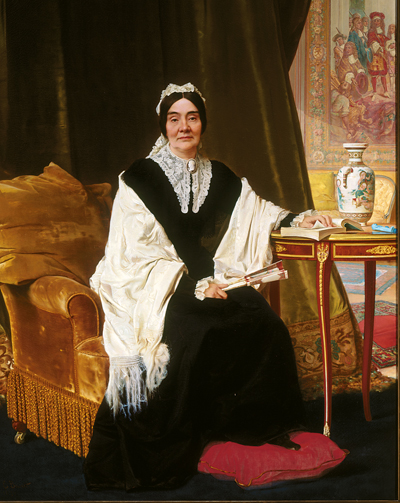Madison Watkins, Staff Writer

As a continuation of the 2016-2017 Faculty Lecture Series, Associate Professor of History, Dr. Felicity Turner, engaged Armstrong students, faculty and staff with an in-depth discussion on Savannah native, Mary Telfair.
“The Madness of Mary Telfair” focused on Telfair’s life and legacy. Following her death, her nephews rallied to get her estate that was originally left in her will to charitable organizations in Savannah. Turner discussed how this court case was important for all women at the time and how many women were perceived as insane.
Mary Telfair lived to be 87 before dying from pneumonia in 1875. An intelligent woman ahead her time, she did not like the societal limitations set in place for women. She was an avid reader and would read any book she could get her hands on.
Since Telfair never married and had few living relatives, she left her $10 million estate in her will to different Savannah organizations, which have now become the Mary Telfair Hospital for Women, the Telfair Museum of Art and the Telfair Academy of Arts and Sciences.
One of the few family members she had left was her grandniece, Alberta Cobb. After Cobb eloped to marry her first husband, Charles Arnold, then divorced him a few years later, Telfair refused to associate with her because of the stigma attached to eloping and divorce.
Cobb remarried Augustus Wetter not long after her divorce and had four children with him before her death in 1866. After Mary Telfair’s death, Wetter challenged her will in court on the grounds of Telfair being mentally incompetent. He wanted her $10 million estate for his children.
He accused Telfair of having monomania, which is a fixation on one idea to the exclusion of others. He claimed that Telfair suffered from monomania because she avoided Cobb and her family at all costs. Wetter’s case made it to the Supreme Court but he did not win rights to her will.
“The outcome of this case mattered because women’s wills were always contested after they were dead and if Wetter won the case, it would mean dismal results for living women in that society,” Dr. Turner explained.
“The contest of her will was a challenge to all upper class white women,” Turner said.
During the 19th century, women often pleaded insanity as the cause of their crimes so they would not be sent to jail. Judges and jury consisted only of men and they had to determine the state of a woman’s mental health. If a woman said she was insane, it was believed she had no control over it because her insanity was believed to be caused by her menstrual cycle.
“The treatment for mental illness at that time for women was ridiculous. If they were depressed they would have their uterus taken out because it was believed as the root for all women’s problems,” an audience member added.
Turner ended the lecture with these words: “We need to rethink the paradigm of equality. It will take a long time to reach that goal. For example, instead of making women register for the draft, we should get rid of the draft altogether.”
Turner recommended “Mary Telfair: The Life and Legacy of a Nineteenth-Century Woman” by Charles J. Johnson Jr. for more information on Mary Telfair.
The 2016-2017 Faculty Lecture Series will conclude with “Engaging in Transformational Leadership: University Opportunities,” by Associate Professor of Nursing, Dr. Debra Hagerty, on Friday, April 7.





